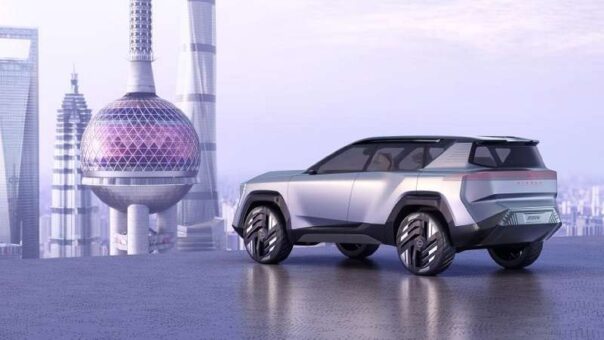Nissan is reportedly planning a significant strategic shift by beginning exports of electric vehicles (EVs) manufactured in China to global markets starting in 2026.
The Japanese automaker aims to tap into growing demand in regions such as Southeast Asia and the Middle East, capitalizing on China’s cost-effective EV production and Nissan’s strong international after-sales network.
At the heart of this initiative is the Nissan N7, a mid-size electric sedan developed through a joint venture in China. Launched in April with promising sales, the N7 starts at an affordable $16,450 USD.
The vehicle is produced at Nissan’s cutting-edge manufacturing facility in Guangzhou, Guangdong Province, renowned for its advanced EV assembly lines.
A key aspect of this global rollout involves adapting the N7’s onboard software to meet international standards. Since the car integrates artificial intelligence technology from Chinese companies, Nissan is working to modify software elements to comply with data security and privacy regulations abroad.
To facilitate this, the automaker has invested in IAT Automobile Technology, a major Chinese automotive software developer.
To further strengthen this export-focused approach, Nissan’s fully owned subsidiary NCIC recently formed a joint venture with Dongfeng Motor.
Officially announced on June 25, the venture has a registered capital of $140 million USD, with NCIC holding a 60% stake and Dongfeng the remaining 40%. This new entity is expected to become the operational hub for Nissan’s China-based EV exports.
China’s leadership in global EV production makes it a strategic base for this expansion. Nissan believes its China-made EVs, which offer competitive pricing and advanced technology, will appeal strongly to international consumers.
In parallel, Nissan plans to introduce more EV and plug-in hybrid models in China, including its first electric pickup truck, expected by the end of 2025.
This export strategy is part of Nissan’s broader business revival plan announced in May. The plan includes streamlining operations by cutting 20,000 jobs and reducing its global factory count from 17 to 10.
By making EVs central to its product lineup and restructuring its global supply chain, Nissan aims to accelerate growth and profitability in the fast-evolving automotive market. The aggressive strategy reflects Nissan’s determination to reclaim market share and lead in electric mobility.
